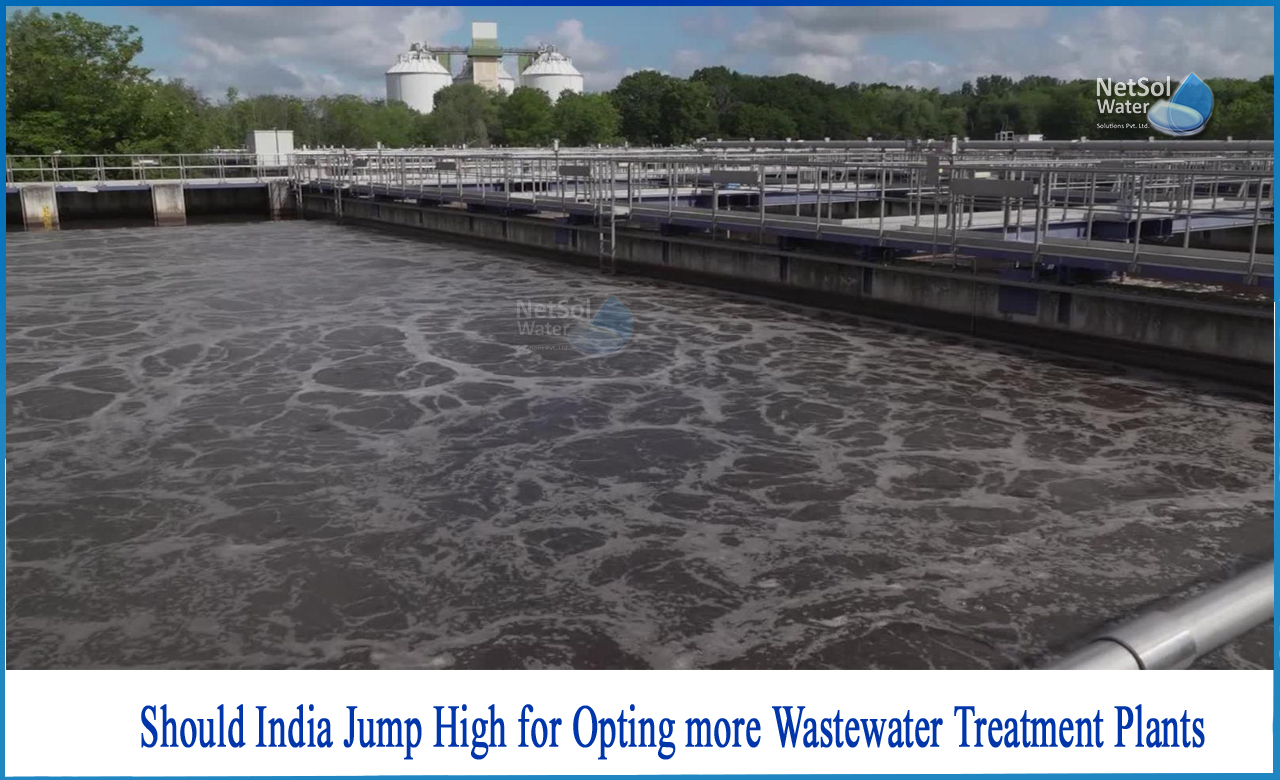Should India jump high for opting more Wastewater Treatment Plants?
Wastewater in India
India moves closer to becoming a more sophisticated economy, one of the costs has been the degradation of our environment. Unfortunately, rapid industrialisation has increased the number of pollutants in our environment. Wastewater is one of these contaminants.Water that has been contaminated is referred to as wastewater.
Sewage and industrial wastes are the two most common sources of water contamination. With India's population and industrial environment both growing at a breakneck pace, wastewater volume is also increasing at an alarming rate. When you add in the diminishing of freshwater sources such as rivers, wells, and groundwater, you have a potentially dangerous situation. Some people believe that water will soon become a valuable commodity.
Effects of Wastewater
Another effect of rising wastewater levels is an increase in the number of bacteria in the environment. It is not only unsafe for drinking, but it can also contaminate other water supplies. For example, dirty water seeps into rivers, polluting them. When contaminated water flows downstream and mixes with other water sources, such as rivers, the contamination spreads even further.
In addition, wastewater leaks into the ground, damaging subsurface water supplies. As a result, practically every water source, from rivers and wells to coastal areas, is now badly polluted. It is a huge environmental concern.
We must tackle this matter with the utmost care because water is too crucial to us. Water is necessary for all humans to survive. Water is essential for animals, agriculture, and the food industry. Natural pollutants such as human and animal waste can be dealt with to a limited extent by nature. The vast volume of wastewater generated today, however, cannot be managed only by nature.
India has come a long way in managing wastewater
Due to high water demand and complex consumption patterns, water supplies in metropolitan areas are under severe strain. India transports water to meet the needs of the majority of its cities. This is inefficient as well as energy-intensive. As a result, a local level solution is required.
In the previous six years, India has built over 800 STPs and tightened discharge limitations. The government's discharge standards are on par with or even stricter than those of many developed countries, signalling that the country is concerned about improving the health of its water bodies. This would protect the country's health and the environment, as well as pave the way for the circular economy concepts of reusing treated wastewater and sewage sludge.
Advanced Wastewater treatment Plants
India is spending heavily in wastewater facilities and networks, with plans in place to handle the remaining fifty percentage of sewage generated in cities. With India's continued increasing urbanisation and the need to treat sewage from semi-urban and rural regions, the number of sewage treatment plants (STPs) required to treat all of the sewage generated in the country is expected to be 4500 or more.
To meet the updated restrictions imposed by the National Green Tribunal, both current STPs that are upgraded and all new STPs will need to employ sophisticated technologies. Technology providers, contractors, and equipment vendors in the field will benefit from such upgrades and greenfield initiatives.
Conclusion
The Indian wastewater treatment sector is experiencing extraordinary expansion, with several STPs being completed, public-private partnership programmes available, and severe discharge rules in place.
Municipalities and government organisations are showing a strong interest in sludge management and circular economy solutions. Recycling and repurposing treated STP water will also benefit the industry. Advanced wastewater and sludge treatment technology providers, contractors, and equipment suppliers are expected to thrive in the Indian wastewater treatment market over the next 20 years.
The country is beginning to act as an example for many developing countries facing wastewater and sludge issues.Due to geographical constraints, selecting treatment technologies for different sizes of urban communities is another difficulty. Waste stabilisation ponds are best suited to small communities with treatment plant property and a need for treated wastewater in agriculture.
Mechanical treatment technologies, such as the activated sludge process, are used in big metropolitan areas where land is scarce for the construction of STPs and there is little demand for treated sewage for farm application.
Netsol Water is Greater Noida-based leading water & wastewater treatment plant manufacturer. We are industry's most demanding company based on client review and work quality. We are known as best commercial RO plant manufacturers, industrial RO plant manufacturer, sewage treatment plant manufacturer, Water Softener Plant Manufacturers and effluent treatment plant manufacturers. Apart from this 24x7 customer support is our USP. Call on +91-9650608473, or write us at enquiry@netsolwater.com for any support, inquiry or product-purchase related query.



